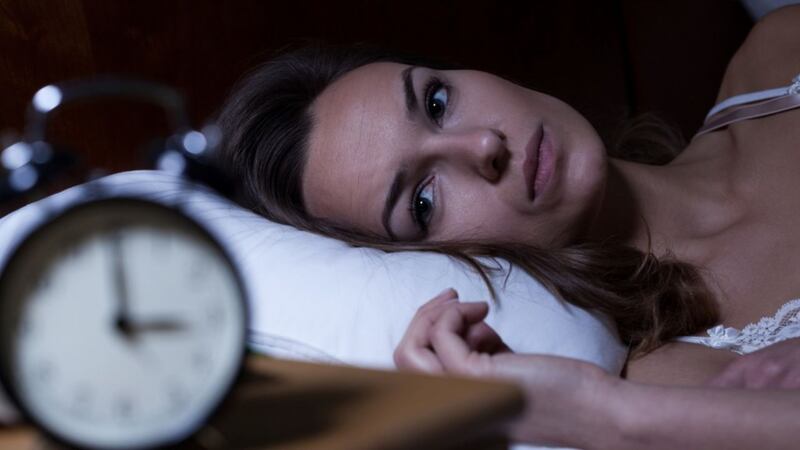Whether you are up late binge-watching shows on Netflix or drinking too much coffee during the day, your body is bearing the brunt of your actions.
Research suggests we are a sleep-deprived nation – and people who sleep less than six hours a night have a 13% higher mortality rate than those sleeping seven hours.
But did you know that our daytime habits have an impact on our sleep? Experts weigh on the things we are doing wrong that’s costing us a good night’s sleep:
1. You’re spending too much time on your smartphone
Smartphone GIF – Find & Share on GIPHY
Studies show those who use their smartphones and tablets too much are worsening the quality of their sleep.
Researchers say not only should phones be avoided before bed, but that too much use throughout the day can also have a negative impact on sleep.
“It is important to try to avoid using your smartphone before bedtime as the blue light the device gives off can disrupt your body’s natural nightly production of melatonin – the hormone that makes you feel sleepy,” explains nutritionist Cassandra Barns.
2. You’re taking your worries to the bed
Challenger GIF – Find & Share on GIPHY
Anxiety can cause sleepless nights.
“Concerns about keeping life’s spinning plates from dropping (metaphorically) can leave us feeling anxious during the day as well as into bedtime,” says Shona Wilkinson, a nutritionist at SuperfoodUK.
“Many will say they try to get to sleep but they are distracted by worries, which get in the way of feeling relaxed and naturally falling asleep.”
Wilkinson recommends taking supplements such as B5 (to support the nervous system) and passionflower can reduce the feelings of mild anxiety and help de-stress.
3. You’re not eating regularly
I Hate Everything GIF – Find & Share on GIPHY
Not getting enough food and irregular eating habits can wreak havoc on your body, leading to spikes in cortisol – the stress hormone that triggers the release of glucose into the bloodstream to increase energy.
“Ensure you are eating little and often during the day to keep your blood sugar steady,” says Dr Marilyn Glenville, author of Natural Alternatives to Sugar.
“This will ensure that cortisol will start to wind down when you go to bed, as it is supposed to do.”
4. You’re setting your alarm to snooze
Alarm GIF – Find & Share on GIPHY
“Hitting snooze on your alarm and prolonging waking yourself up can disrupt your morning – as you are starting a new sleep cycle, which you won’t be able to finish before your alarm goes off again,” says Burns.
“This sleeping habit can make you feel groggier in the day, and can even disrupt sleep the next night too.”
5. You’re drinking coffee late in the day
Coffee GIF – Find & Share on GIPHY
Reaching for that 4pm coffee to beat your afternoon slump? You’ll probably still be feeling its effects when you try to get some shut-eye at bedtime.
“Stimulants such as tea and coffee should be avoided,” says Wilkinson. “Caffeine can stay in the body for up to 12 hours – so if you do have sleep problems, avoid tea or coffee from about 12 noon onwards.
“Also, strong dark chocolate may be better for us than milk chocolate but also contains other stimulants similar to caffeine so is best avoided before bed.”
6. You aren’t exercising enough
Desk GIF – Find & Share on GIPHY
Studies suggest those who exercise sleep better than couch potatoes. Researchers also add that working out can also be a great stress reliever and help you feel more relaxed and ready for a good snooze when it’s time to hit the basket.
“Working out can play a major role in managing stress levels,” says Chris Sweeney, co-founder of social fitness app Fitssi.
“Physical activity boosts the production of the ‘happy hormone’ endorphin, also commonly known as the ‘runner’s high’. Endorphins trigger a positive feeling in the body, which reduces the feeling of pain and helps you to relax.
Glenville advises exercising early in the day rather than evenings. “Exercise can be stimulating and some people find it hard to relax after a late workout session,” she adds.
7. You have an erratic sleep routine
Insomnia GIF – Find & Share on GIPHY
Irregular routines can interfere with a good night’s sleep.
“Keep routines on your normal schedule,” says Glenville. “Many people I see are actually falling asleep around 9pm and then find they are waking too early in the morning.
“You want to try to go to bed at the same time and get up at the same time every day. A cup of herbal tea, like camomile, an hour before bed can begin the routine. Getting up at the same time is most important.”
8. Your bedroom’s just not right
The Daily Doodles GIF – Find & Share on GIPHY
“It’s important to keep work out of the bedroom, so move studying and getting through your emails to another room,” says Wilkinson. “This helps you to associate your bedroom as a place of rest.
“Establish the mood of the room – making it a calm and relaxing environment. This includes the colour of the walls, bed linen and decor, avoiding very bright, stimulating colours.”
9. You can’t resist that glass of wine with your meal
CraveTV GIF – Find & Share on GIPHY
It’s tempting to indulge in a few glasses of prosecco but alcohol can interfere with your restful sleep.
“Not only does alcohol affect blood sugar levels causing adrenaline and cortisol to be released, but it also blocks the transport of tryptophan into the brain,” says Glenville.
“Tryptophan is important because it is converted into serotonin, the calming and relaxing neurotransmitter.”








